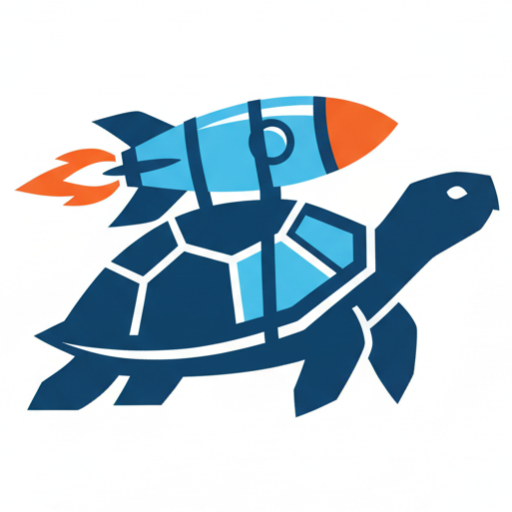We all know that staying productive can feel like an uphill battle, especially when juggling multiple tasks, working remotely, or trying to maintain deep focus throughout the day. But what if gaming, something most people associate with relaxation, could be one of the most effective ways to boost productivity?
Gaming isn’t just entertainment. It is a mental training ground for skills that impact focus, creativity, problem-solving, and teamwork.
If you’ve ever played a fast-paced game that demanded quick decisions or a strategy game that required long-term planning, you’ve already developed key skills that translate directly into professional success. As someone in remote work and quality assurance, I’ve seen firsthand how gaming enhances productivity, improves collaboration, and strengthens cognitive skills essential for work.
Let’s break down exactly how gaming can improve productivity, whether you’re working in tech, remote work, or team management.

1. Gaming Improves Focus and Multitasking
Work Applications: High-focus jobs, remote work, testing, fast decision-making
If you’ve ever played Starcraft, Overwatch, or any high-speed decision-making game, you know how much mental effort goes into tracking multiple things at once. In these games, you manage positioning, timing, and resources while staying calm under pressure.
Now, apply this to work:
- Managing multiple projects at once? Gaming enhances your ability to switch tasks efficiently.
- Need focus for deep work? Games train you to maintain intense concentration.
- Dealing with high-pressure situations? Games build mental resilience under stress.
Real-World Example
I often juggle email management, software testing, and writing blog posts. Because of my gaming habits, I’ve developed an ability to stay sharp while switching tasks quickly without feeling overwhelmed. It is like training your brain in an interactive, high-pressure environment.
2. Gaming Boosts Creativity and Problem-Solving
Work Applications: Brainstorming, innovation, strategic thinking, troubleshooting
Not all creativity comes from traditional art. Problem-solving in gaming is the same as creative thinking in work. Games like Minecraft, The Witcher 3, or puzzle-based strategy games force players to think outside the box.
- Stuck on a complex work problem? Strategy games train your brain to adapt quickly and think critically.
- Need innovative solutions? Open-world and puzzle games encourage flexible thinking.
- Troubleshooting errors? Problem-solving in games mirrors the skills needed in quality assurance, debugging, and testing.
Real-World Example
As a quality assurance tester, I troubleshoot software bugs daily. Many times, I’ve found solutions thanks to problem-solving skills developed from gaming. When you spend hours in a game figuring out puzzles or crafting winning strategies, those mental pathways carry over to real-life problem-solving.
3. Gaming Helps Manage Stress and Mental Fatigue
Work Applications: Preventing burnout, taking effective breaks, mental resets
Too much constant work leads to burnout. But instead of mindlessly scrolling social media, gaming offers a structured mental reset that keeps your brain engaged without overwhelming it.
- Short breaks with gaming refresh cognitive function better than passive activities.
- Strategy games like Civilization or quick Battle Royale matches offer structured downtime.
- Unlike social media, gaming doesn’t overload you with passive information. It keeps you engaged.
Real-World Example
When I’m deep into testing or content creation, a 20-minute gaming break does more to refresh my focus than an hour of aimless scrolling. This is because games activate your brain’s problem-solving centers while providing a relaxing escape.
4. Multiplayer Games Strengthen Team Collaboration
Work Applications: Remote teamwork, communication, leadership, task delegation
Think about how multiplayer games work:
- Team communication is key. You learn how to express clear, concise instructions.
- Task delegation is crucial. In games like Overcooked or Fortnite, everyone has a role.
- Team synergy improves performance. Just like in real teams, strong collaboration leads to success.
Real-World Example
When working with cross-functional teams, I’ve noticed that gamers often communicate more efficiently. They adapt faster, delegate smarter, and make decisions under pressure.
5. Gaming Can Be a Powerful Management and Leadership Tool
Work Applications: Remote team bonding, trust-building, engagement strategies
If you manage a team, especially remotely, gaming can be a surprisingly effective way to strengthen relationships.
- Casual gaming sessions like Among Us or Minecraft help managers build trust with employees.
- Gamification strategies in work, such as leaderboards, rewards, and challenges, improve engagement.
- Team-building games promote teamwork outside traditional meetings.
Real-World Example
I’ve seen managers break down communication barriers through gaming-based team-building activities. When remote teams game together, it fosters camaraderie that carries over to work.
Which Work Environments Benefit Most from Gaming?
Gaming is a better fit for some work cultures than others.
- Flexible, creative workplaces like tech startups, game development, and quality assurance thrive with gaming-inspired productivity models.
- Rigid, high-structure environments like business process outsourcing and corporate finance may limit gaming to personal downtime.
Real-World Example
I’ve worked in both agile development and traditional corporate jobs. Gaming-based problem-solving works best in innovation-driven fields like software development and remote work environments, while corporate jobs require a more structured approach.
Final Takeaway: Apply Gaming to Your Work for Maximum Productivity
Gaming isn’t a distraction. It is a training ground for real-world productivity skills.
- Want to improve focus? Play strategy or fast-paced decision-making games.
- Need better creativity? Open-world and puzzle games build innovative thinking.
- Struggling with teamwork? Multiplayer games sharpen communication and collaboration.
Try incorporating structured gaming breaks into your workflow and observe the impact on your productivity.
Want more productivity hacks inspired by gaming?
Check out Overcoming Procrastination with Gaming Mindsets. Explore The Role of Technology in Boosting Productivity.
Let’s turn gaming into your ultimate productivity tool.

